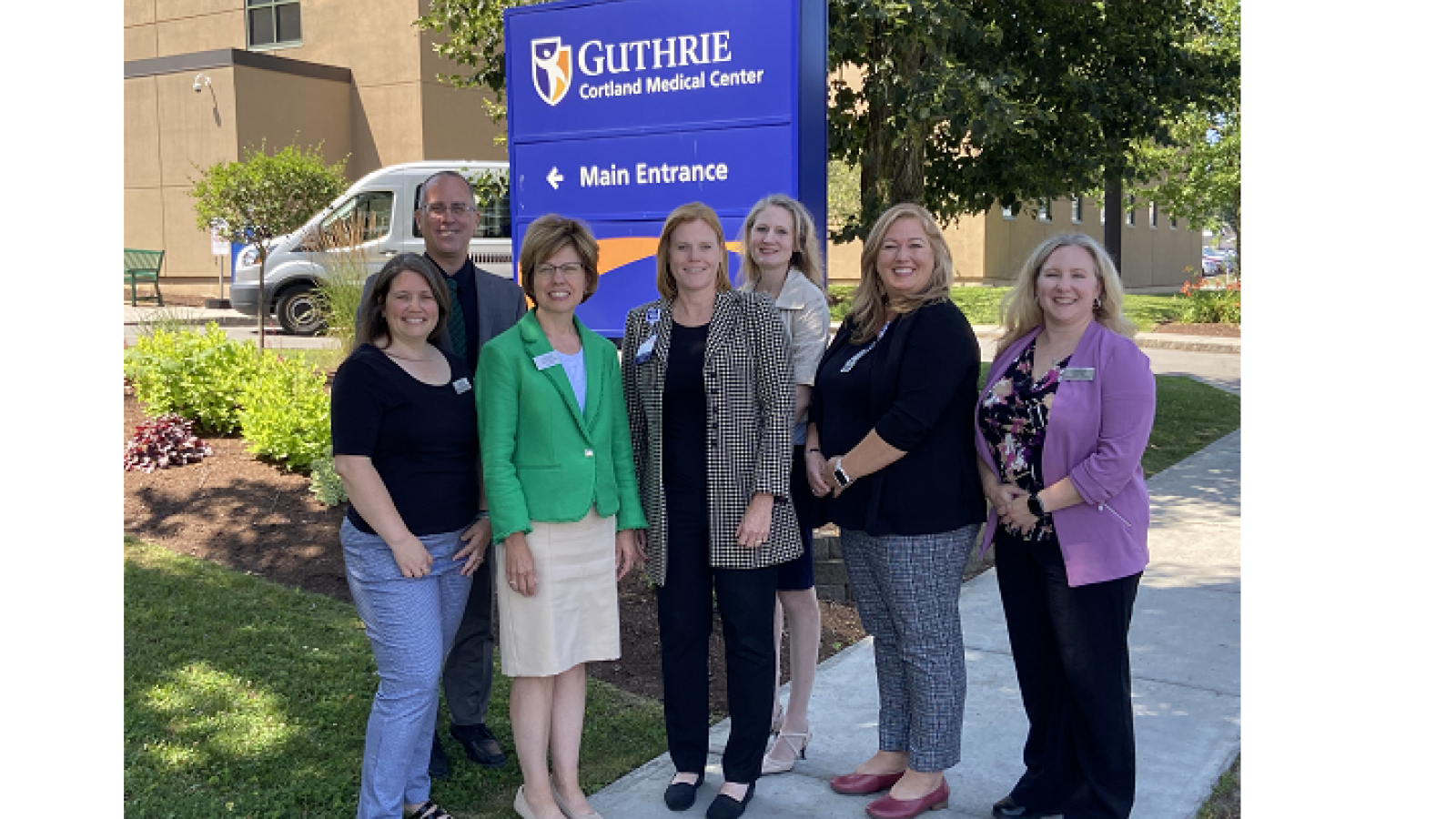Guthrie and Tompkins Cortland Community College Partner to Combat National Shortage

Guthrie Cortland Medical Center (GCMC) and Tompkins Cortland Community College (TC3) are working together to build and maintain the highest level of nursing care in the region.
In partnership with Guthrie, Tompkins Cortland Community College will add additional students and expand its nursing school offerings to create two new Cohorts, both with December graduations. This will produce even more high-quality graduates locally, and do so at a non-traditional time of year, making it easier to fill nursing positions year-round.
“Tompkins Cortland Community College thrives on community partnerships, and this strong partnership with Guthrie Cortland is a prime example,” said Amy Kremenek, Tompkins Cortland Community College President. “The demand for nurses is continuing to increase, which makes it vital that we work together to best educate and train the next generation of nurses. This partnership, which allows TC3 to continue to offer the only evening-based nursing program in the region, is a model of how the College and a forward-thinking community partner like Guthrie Cortland can work together to do what's best for our students and our community.”
This expanded program is a continuation of a partnership originally formed in 2019. It operates in the evening hours, attracting non-traditional students, including those who need to continue working full-time while they gain the education necessary to transition to a career in nursing. Students will also be allowed to spread clinical requirements over evening hours at GCMC and Guthrie will help offset the costs associated with expanding this program.
“Strengthening our partnership with Tompkins Cortland Community College allows us to meet high-quality candidates where they are,” said Kansas Underwood, Chief Nursing Officer and VP of Operations for Guthrie Cortland Medical Center. “Together, Guthrie and TC3 will do our part to combat the nursing shortage, locally, and break down the barriers that prevent prospective candidates from realizing their dreams of becoming a nurse who makes a difference in the lives of their fellow community members.”

